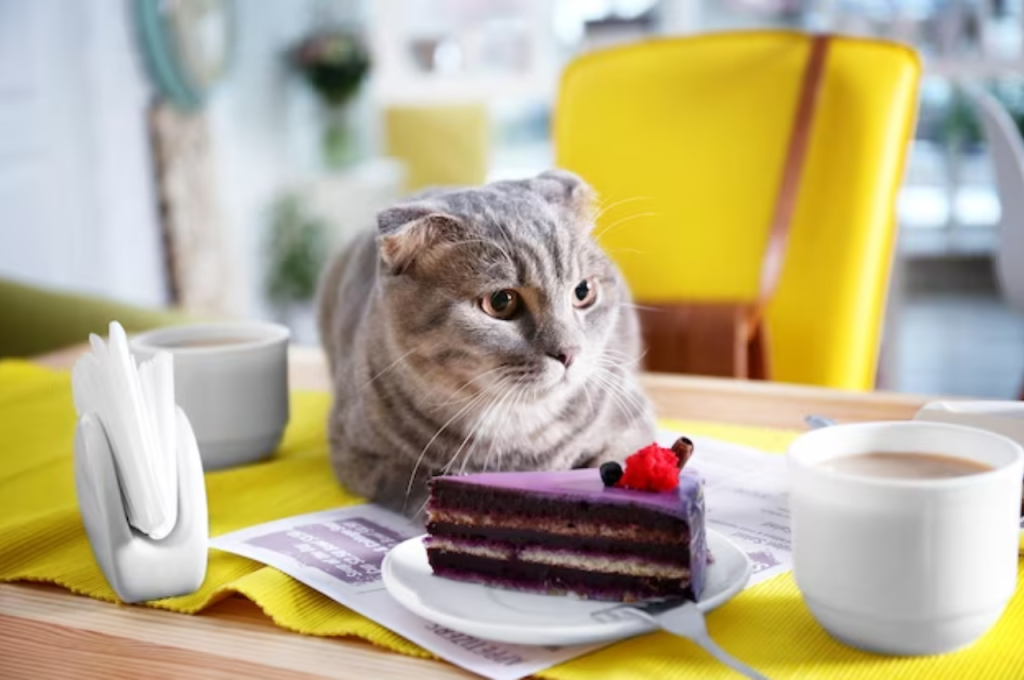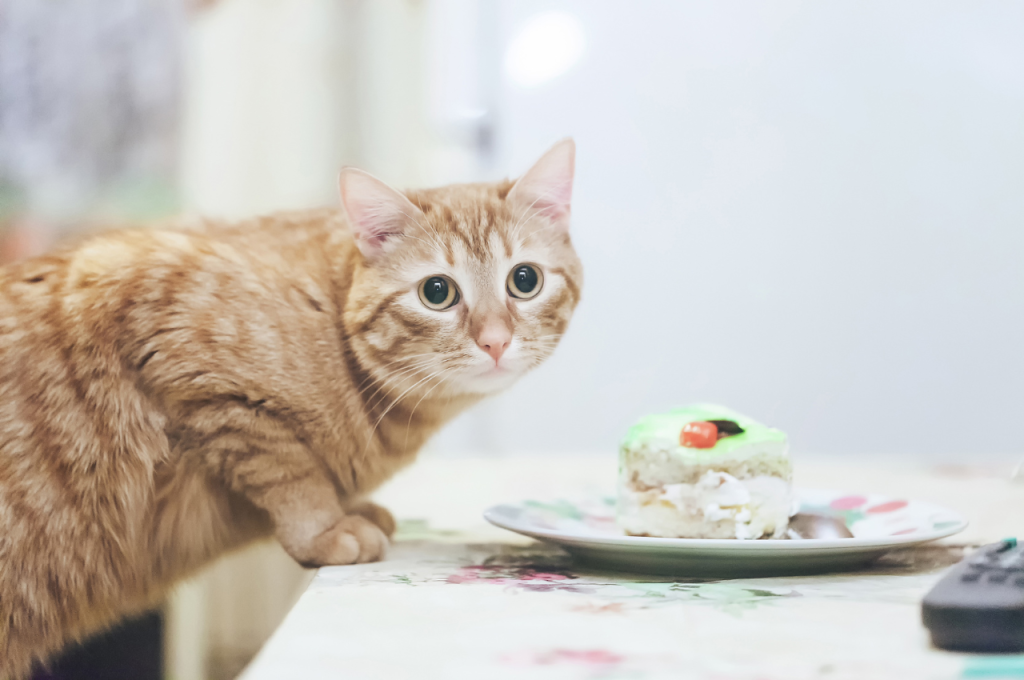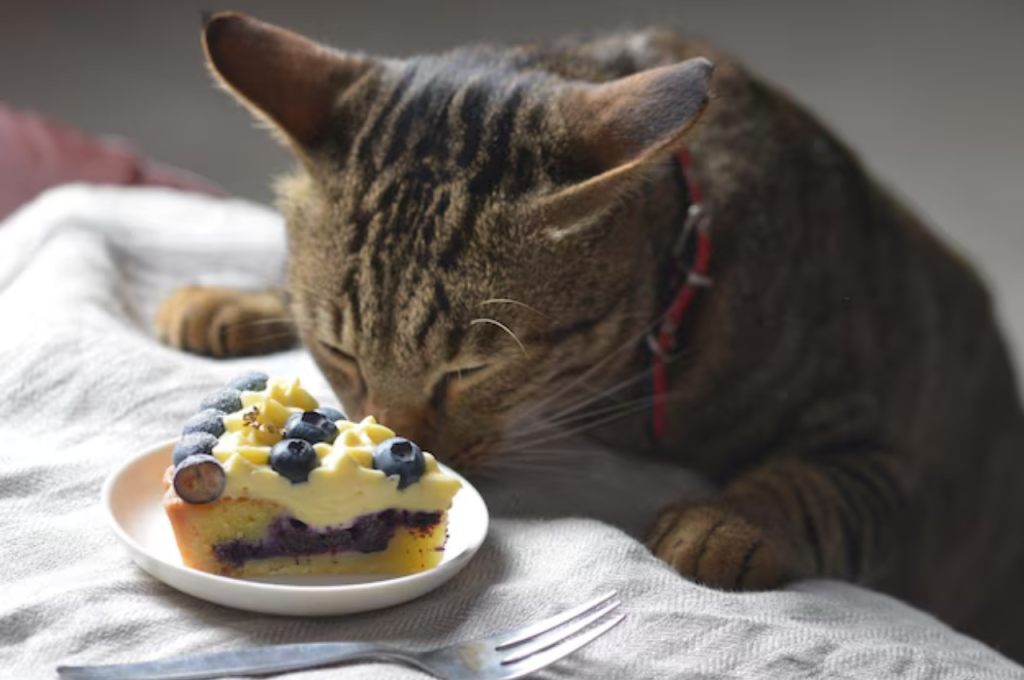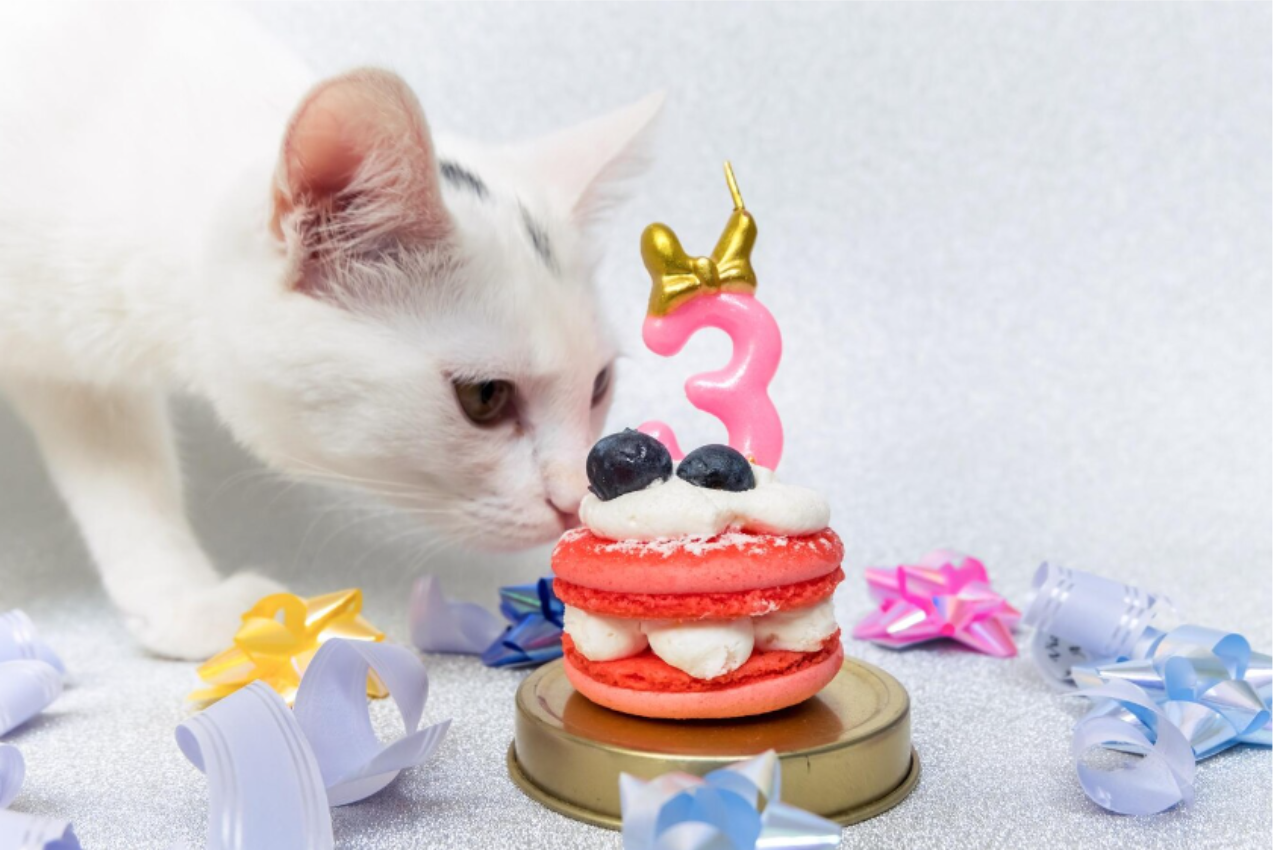Cats should not eat cake as it can be harmful to their health. Cats are obligate carnivores, meaning their bodies are not designed to process sugars and other ingredients found in cake. Consuming cake can lead to digestive issues, obesity, and potential poisoning for cats. Even small amounts of chocolate or xylitol can be toxic to cats, causing symptoms such as vomiting, diarrhea, and in severe cases, seizures and liver failure.
It’s essential to ensure that cats have a well-balanced diet of high-quality cat food to maintain their overall health and well-being. Offering specially formulated treats for cats, in moderation, is a safer alternative to indulging them in human desserts like cake.
The Tempting Question
When it comes to cats and their dietary habits, there’s often a lingering curiosity about what they can and cannot eat. One common treat that sparks this curiosity is cake. Many cat owners wonder if their feline friends can partake in this tempting delight. Let’s unravel the mystery behind whether felines can indulge in this sweet goodness.

The Curiosity
Cats have a natural inquisitiveness when it comes to anything new, especially when it involves food. Their keen interest in cakes often prompts owners to question whether it’s safe for their pets to have a taste. This curiosity raises concerns about the potential impact of cake consumption on a cat’s health.
Feline Diet Rules
- Cats have specific dietary needs that differ from humans, making it crucial to consider their nutritional requirements.
- Chocolate and certain sweeteners in cakes are toxic to cats and can lead to severe health issues, emphasizing the importance of avoiding such ingredients.
- The high sugar and fat content in cake can cause digestive problems and contribute to obesity, posing risks to a cat’s well-being.
Cats and Sweet Treats
As cat owners, it’s natural to want to share delicious treats with our feline friends. However, when it comes to cats and sweet treats like cake, there are some important considerations to keep in mind. In this article, we’ll explore the topic of whether cats can eat cake and delve into the impact of sugar on our furry companions. Let’s start by understanding why cats and sweet treats don’t always mix well.
Inherent Carnivores
Cats are inherently carnivorous creatures, which means their bodies are designed to thrive on a diet primarily consisting of meat. Their digestive systems are specifically adapted to break down and process animal proteins efficiently. While a small amount of carbohydrates can be tolerated, the majority of a cat’s diet should consist of high-quality meat-based foods.
When cats consume sweet treats like cake, they’re exposed to a range of ingredients that are foreign to their natural diet. These can include refined sugars, processed flour, artificial flavorings, and potentially harmful additives. The introduction of such ingredients can disrupt the delicate balance of a cat’s digestive system and lead to various health issues.
Sugar and Cats
Sugar, a common component in cakes and other sweet treats, is not part of a cat’s natural diet. Cats lack the necessary taste receptors to detect sweetness, and their bodies are not equipped to process large amounts of sugar effectively. Excessive sugar consumption in cats can lead to various health problems, including:

- Obesity: Cats are susceptible to weight gain, and sugar-laden treats can contribute to excessive calorie intake and weight-related issues.
- Dental Problems: Sugar promotes the growth of harmful bacteria in a cat’s mouth, leading to dental issues such as tartar build-up and gum disease.
- Diabetes: Prolonged exposure to high levels of sugar can disrupt a cat’s insulin regulation, increasing the risk of diabetes.
- Upset Stomach: Cats may experience digestive upset, including diarrhea or vomiting, when they consume cake or other sugary treats.
While it may be tempting to share a piece of cake with your feline friend, it’s important to prioritize their health and well-being. It’s best to stick to a balanced diet that aligns with their natural carnivorous needs. If you’re looking for safe and appropriate treats to indulge your cat, there are specially formulated cat treats available that are designed to meet their nutritional requirements without the harmful effects of sugar.
Effects of Cake Consumption
Consuming cake can be harmful to cats as it can lead to digestive issues and weight gain. The ingredients in cake including sugar and dairy can be difficult for cats to digest, potentially causing discomfort or sickness. It is best to avoid feeding cake to cats and opt for feline-friendly treats.
Potential Health Issues
Cake contains ingredients like sugar and fat, which can lead to various health problems.
- Obesity
- Tooth decay
- High blood sugar levels
Nutritional Imbalance
Cake lacks essential nutrients like vitamins and minerals, causing a nutritional imbalance if consumed excessively.
| Nutrients in Cake | Recommended Nutrients |
| High in sugar and fats | Low in essential vitamins and minerals |
The Meow-nificent Solutions
When it comes to treating our feline friends, it’s essential to consider their dietary needs. While many of us humans enjoy indulging in a slice of cake every now and then, can our beloved cats partake in this sweet delight? Let’s explore the meow-nificent solutions to this curious question.
Balanced Diet Importance
A well-balanced diet plays a crucial role in maintaining the health and happiness of our furry companions. Cats are obligate carnivores, meaning their bodies require a high percentage of animal protein to thrive. While cakes may contain tasty ingredients like butter, sugar, and milk, they lack the essential nutrients that cats need for optimal functioning.
It’s important to note that cats have unique dietary requirements, and deviation from their natural diet can lead to various health issues. Feeding them a cake, which is predominantly made using ingredients unsuitable for their digestive systems, may result in digestive upset, obesity, or even more severe complications.
Consulting A Vet
When it comes to keeping our feline friends safe and healthy, consulting a veterinarian is always the best course of action. Vets possess the knowledge and expertise to guide us in making the right dietary choices for our cats.
If you’re considering treating your cat with some cake, it is advisable to seek professional advice from a vet beforehand. They can analyze your cat’s overall health, age, and specific dietary requirements to determine whether a small indulgence would pose any risks.

Remember, prevention is better than cure, and consulting a vet can avert any potential health hazards that might arise from feeding cake to your feline friends.
Conclusion
It’s best to avoid giving cats cake as it can be harmful to their health. While they may be curious about the sweet treat, cats lack the necessary enzymes to properly digest certain ingredients found in cakes. Opting for cat-friendly treats and a balanced diet is crucial to ensure your feline companion’s well-being.
Keep your furry friend happy and healthy by selecting treats specifically made for them.
